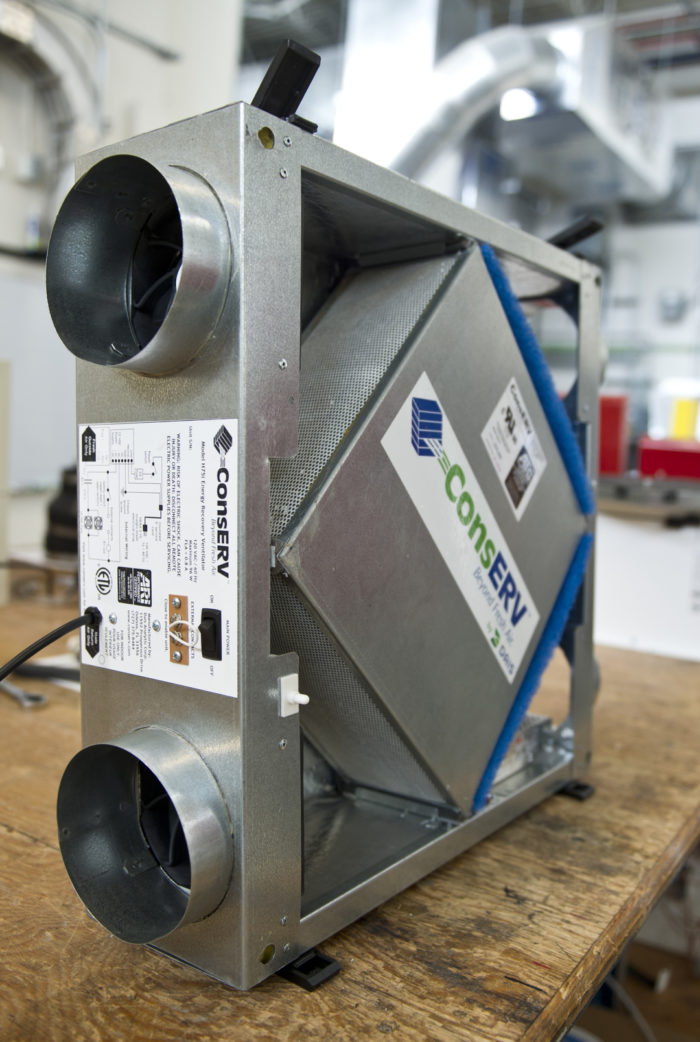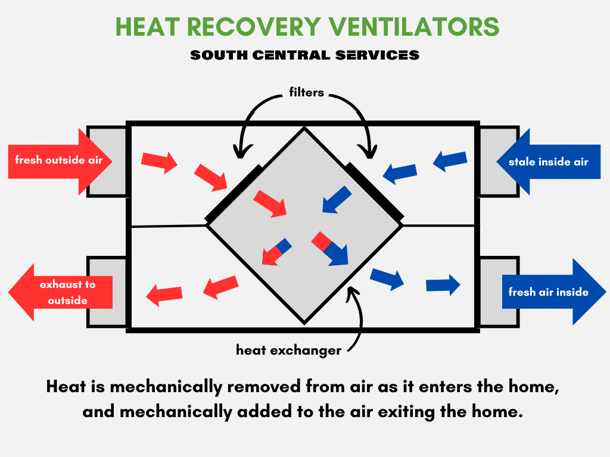HRV Explained: What Every Homeowner Must Understand
Wiki Article
Discovering the Benefits of Heat Recovery Ventilation for Energy Effectiveness in Residences
Heat Recovery Ventilation (HRV) systems supply homeowners a useful approach to enhancing power efficiency. By reclaiming warm from outgoing air, these systems can significantly minimize heating & cooling expenses. Furthermore, they provide a stable supply of fresh air, boosting indoor air top quality and comfort levels. As homeowners take into consideration lasting alternatives, comprehending the nuances of HRV systems becomes progressively essential. What aspects should one assess prior to making such a financial investment?Recognizing Heat Recovery Ventilation Solutions

How HRV Boosts Indoor Air Top Quality

Energy Financial Savings: The Financial Benefits of HRV
Optimizing power effectiveness, heat recovery ventilation (HRV) systems supply considerable economic benefits for homeowners. By recovering and reusing warmth from exhaust air, HRVs markedly lower cooling and heating prices. This modern technology can cause power cost savings of up to 30%, relying on environment and use patterns. House click here for more owners typically see decreased energy costs soon after installation, making HRVs a financially smart financial investment with time. Additionally, several regions supply rewards or rebates for energy-efficient upgrades, additionally boosting the monetary allure. As energy rates remain to increase, the cost-effectiveness of HRVs becomes significantly clear. In general, the consolidation of HRV systems not just advertises energy performance however also contributes to long-lasting monetary savings for households.The Ecological Impact of Heat Recovery Ventilation
A significant ecological benefit of heat recovery ventilation (HRV) systems hinges on their capacity to reduce general power consumption. By redeeming heat from exhaust air and moving it to inbound fresh air, HRV systems minimize the requirement for energy-intensive home heating and cooling approaches. This decrease in energy demand adds to decrease greenhouse gas exhausts, as less fossil gas is needed to maintain comfy interior temperature levels. In addition, HRV systems boost indoor air top quality by efficiently trading stale air with fresh outside air, decreasing dependence on mechanical air conditioning systems that can hurt the environment. Overall, the implementation of HRV systems sustains sustainable living practices and straightens with international initiatives to combat climate modification by promoting energy effectiveness in property setups.
Selecting the Right HRV System for Your Home
Exactly how can house owners ensure they select the best heat recovery ventilation (HRV) system for their requirements? They ought to evaluate their home's size and design, as these elements influence airflow requirements. Next, evaluating the system's performance scores is crucial, as greater ratings indicate far better efficiency and power cost savings. Homeowners ought to also consider installment and upkeep expenses, comparing different brands and versions for worth. Additionally, it is necessary to examine sound levels, as some systems run more quietly than others. Consulting with a/c specialists can supply tailored suggestions based on specific home conditions. Taking a look at customer evaluations and service warranties can help in making a notified choice, guaranteeing that the picked HRV system properly boosts interior air quality and power efficiency.Regularly Asked Concerns

How Often Should I Tidy or Maintain My HRV System?
The frequency of cleaning or keeping a heat recovery ventilation (HRV) system normally depends upon use and ecological aspects. Typically, it is recommended to perform maintenance every six months to assure peak performance and air quality.
Can HRV Equipments Help In Reducing Moisture Degrees Indoors?
HRV systems can properly lower indoor moisture degrees by exchanging image source stagnant, damp air with fresh, drier air from outdoors. HRV Heat Recovery Ventilation. This process helps keep a well balanced interior setting, boosting comfort and protecting against moisture-related problems
What Is the Lifespan of a Typical HRV System?
The lifespan of a regular heat recovery ventilation (HRV) system varies, typically lasting between 10 to 15 years. Routine upkeep can prolong its effectiveness and functional life, making sure peak performance throughout its usage period.Are There Any Sound Interest In HRV Equipments?
Sound resource interest in HRV systems can arise, particularly from fan procedure. However, lots of modern-day units are created to lessen audio levels, ensuring they operate silently while maintaining effectiveness, which resolves prospective disturbances in living environments.Can I Install an HRV System Myself, or Do I Need an Expert?
The private contemplated whether to mount the heat recovery ventilation (HRV) system directly or work with an expert. Usually, while do it yourself setup is possible, competence warranties appropriate capability and conformity with neighborhood building regulations, boosting system performance.Report this wiki page